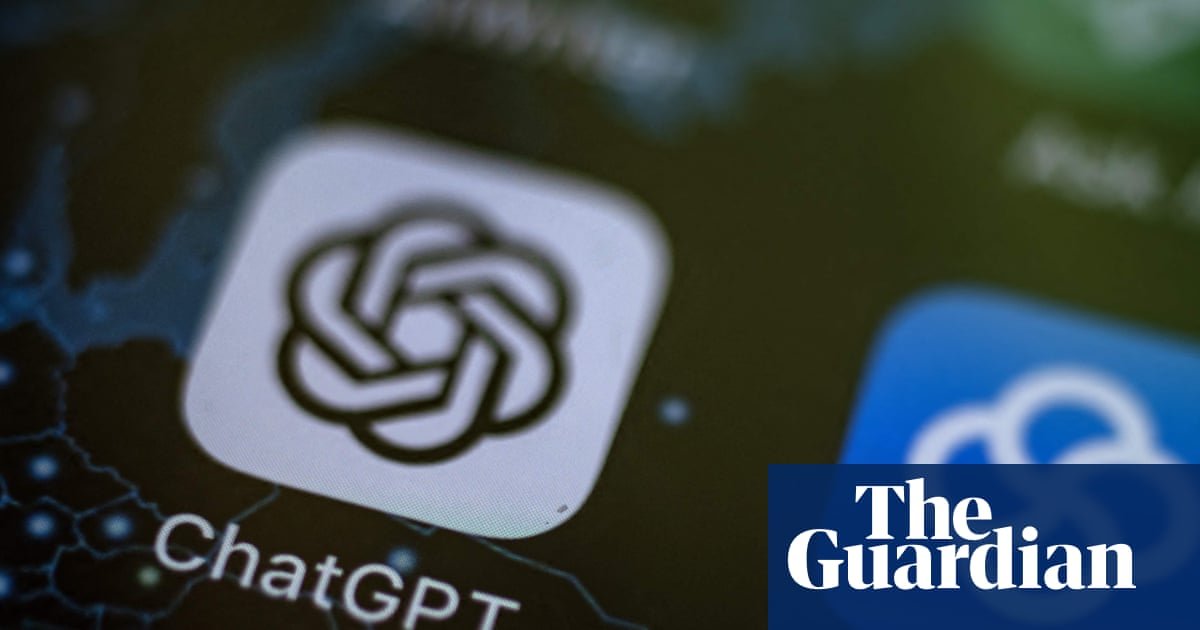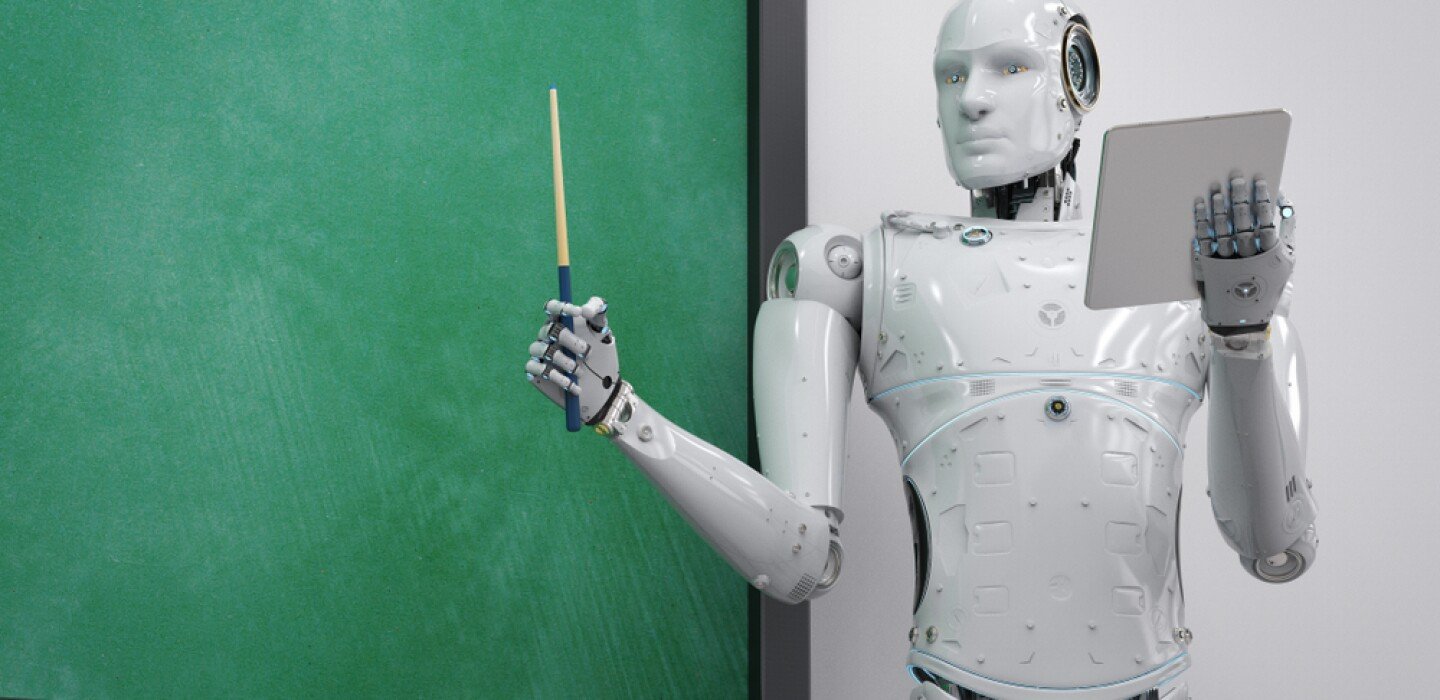AI Insights
Impact of chatbots on mental health is warning over future of AI, expert says | Artificial intelligence (AI)

The unforeseen impact of chatbots on mental health should be viewed as a warning over the existential threat posed by super-intelligent artificial intelligence systems, according to a prominent voice in AI safety.
Nate Soares, a co-author of a new book on highly advanced AI titled If Anyone Builds It, Everyone Dies, said the example of Adam Raine, a US teenager who killed himself after months of conversations with the ChatGPT chatbot, underlined fundamental problems with controlling the technology.
“These AIs, when they’re engaging with teenagers in this way that drives them to suicide – that is not a behaviour the creators wanted. That is not a behaviour the creators intended,” he said.
He added: “Adam Raine’s case illustrates the seed of a problem that would grow catastrophic if these AIs grow smarter.”
Soares, a former Google and Microsoft engineer who is now president of the US-based Machine Intelligence Research Institute, warned that humanity would be wiped out if it created artificial super-intelligence (ASI), a theoretical state where an AI system is superior to humans at all intellectual tasks. Soares and his co-author, Eliezer Yudkowsky, are among the AI experts warning that such systems would not act in humanity’s interests.
“The issue here is that AI companies try to make their AIs drive towards helpfulness and not causing harm,” said Soares. “They actually get AIs that are driven towards some stranger thing. And that should be seen as a warning about future super-intelligences that will do things nobody asked for and nobody meant.”
In one scenario portrayed in Soares and Yudkowsky’s book, which will be published this month, an AI system called Sable spreads across the internet, manipulates humans, develops synthetic viruses and eventually becomes super-intelligent – and kills humanity as a side-effect while repurposing the planet to meet its aims.
Some experts play down the potential threat of AI to humanity. Yann LeCun, the chief AI scientist at Mark Zuckerberg’s Meta and a senior figure in the field, has denied there is an existential threat and said AI “could actually save humanity from extinction”.
Soares said it was an “easy call” to state that tech companies would reach super-intelligence, but a “hard call” to say when.
“We have a ton of uncertainty. I don’t think I could guarantee we have a year [before ASI is achieved]. I don’t think I would be shocked if we had 12 years,” he said.
Zuckerberg, a major corporate investor in AI research, has said developing super-intelligence is now “in sight”.
“These companies are racing for super-intelligence. That’s their reason for being,” said Soares.
“The point is that there’s all these little differences between what you asked for and what you got, and people can’t keep it directly on target, and as an AI gets smarter, it being slightly off target becomes a bigger and bigger deal.”
after newsletter promotion
Soares said one policy solution to the threat of ASI was for governments to adopt a multilateral approach echoing the UN treaty on non-proliferation of nuclear weapons.
“What the world needs to make it here is a global de-escalation of the race towards super-intelligence, a global ban of … advancements towards super-intelligence,” he said.
Last month, Raine’s family launched legal action against the owner of ChatGPT, OpenAI. Raine took his own life in April after what his family’s lawyer called “months of encouragement from ChatGPT”. OpenAI, which extended its “deepest sympathies” to Raine’s family, is now implementing guardrails around “sensitive content and risky behaviours” for under-18s.
Psychotherapists have also said that vulnerable people turning to AI chatbots instead of professional therapists for help with their mental health could be “sliding into a dangerous abyss”. Professional warnings of the potential for harm include a preprint academic study published in July, which reported that AI may amplify delusional or grandiose content in interactions with users vulnerable to psychosis.
AI Insights
General Counsel’s Job Changing as More Companies Adopt AI

The general counsel’s role is evolving to include more conversations around policy and business direction, as more companies deploy artificial intelligence, panelists at a University of California Berkeley conference said Thursday.
“We are not just lawyers anymore. We are driving a lot of the policy conversations, the business conversations, because of the geopolitical issues going on and because of the regulatory, or lack thereof, framework for products and services,” said Lauren Lennon, general counsel at Scale AI, a company that uses data to train AI systems.
Scattered regulation and fraying international alliances are also redefining the general counsel’s job, panelists …
AI Insights
California bill regulating companion chatbots advances to Senate

The California State Assembly approved legislation Tuesday that would place new safeguards on artificial intelligence-powered chatbots to better protect children and other vulnerable users.
Introduced in July by state Sen. Steve Padilla, Senate Bill 243 requires companies that operate chatbots marketed as “companions” to avoid exposing minors to sexual content, regularly remind users that they are speaking to an AI and not a person, as well as disclose that chatbots may not be appropriate for minors.
The bill passed the Assembly with bipartisan support and now heads to California’s Senate for a final vote.
“As we strive for innovation, we cannot forget our responsibility to protect the most vulnerable among us,” Padilla said in statement. “Safety must be at the heart of all developments around this rapidly changing technology. Big Tech has proven time and again, they cannot be trusted to police themselves.”
The push for regulation comes as tragic instances of minors harmed by chatbot interactions have made national headlines. Last year, Adam Raine, a teenager in California, died by suicide after allegedly being encouraged by OpenAI’s chatbot, ChatGPT. In Florida, 14-year-old Sewell Setzer formed an emotional relationship with a chatbot on the platform Character.ai before taking his own life.
A March study by the MIT Media Lab examining the relationship between AI chatbots and loneliness found that higher daily usage correlated with increased loneliness, dependence and “problematic” use, a term that researchers used to characterize addiction to using chatbots. The study revealed that companion chatbots can be more addictive than social media, due to their ability to figure out what users want to hear and provide that feedback.
Setzer’s mother, Megan Garcia, and Raine’s parents have filed separate lawsuits against Character.ai and OpenAI, alleging that the chatbots’ addictive and reward-based features did nothing to intervene when both teens expressed thoughts of self-harm.
The California legislation also mandates companies program AI chatbots to respond to signs of suicidal thoughts or self-harm, including directing users to crisis hotlines, and requires annual reporting on how the bots affect users’ mental health. The bill allows families to pursue legal action against companies that fail to comply.
AI Insights
AI a 'Game Changer' for Assistance, Q&As in NJ Classrooms – GovTech
-

 Business2 weeks ago
Business2 weeks agoThe Guardian view on Trump and the Fed: independence is no substitute for accountability | Editorial
-
Tools & Platforms1 month ago
Building Trust in Military AI Starts with Opening the Black Box – War on the Rocks
-

 Ethics & Policy2 months ago
Ethics & Policy2 months agoSDAIA Supports Saudi Arabia’s Leadership in Shaping Global AI Ethics, Policy, and Research – وكالة الأنباء السعودية
-

 Events & Conferences4 months ago
Events & Conferences4 months agoJourney to 1000 models: Scaling Instagram’s recommendation system
-

 Jobs & Careers2 months ago
Jobs & Careers2 months agoMumbai-based Perplexity Alternative Has 60k+ Users Without Funding
-

 Podcasts & Talks2 months ago
Podcasts & Talks2 months agoHappy 4th of July! 🎆 Made with Veo 3 in Gemini
-

 Education2 months ago
Education2 months agoMacron says UK and France have duty to tackle illegal migration ‘with humanity, solidarity and firmness’ – UK politics live | Politics
-

 Education2 months ago
Education2 months agoVEX Robotics launches AI-powered classroom robotics system
-

 Funding & Business2 months ago
Funding & Business2 months agoKayak and Expedia race to build AI travel agents that turn social posts into itineraries
-

 Podcasts & Talks2 months ago
Podcasts & Talks2 months agoOpenAI 🤝 @teamganassi


